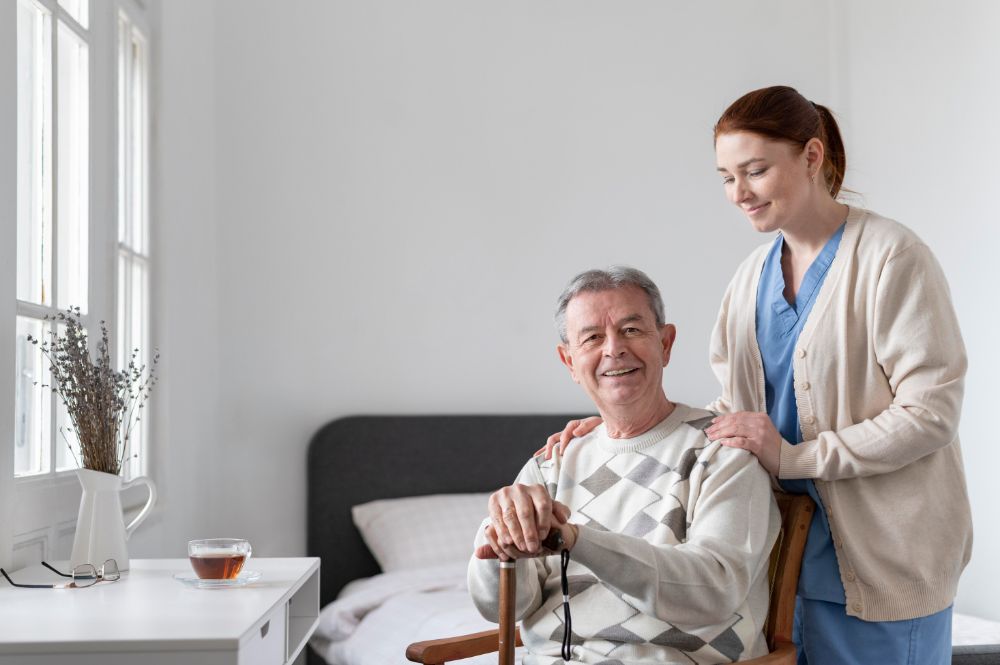Is Medical Therapy Not Provided in Comfort Care?
Comfort care, often referred to as palliative care, is a type of care designed to focus on providing relief from the symptoms, pain, and stress of serious illnesses. The primary goal of comfort care is to enhance the quality of life for the patient, rather than attempting to cure the underlying illness. This type of care is particularly beneficial for individuals with chronic conditions or those nearing the end of life.
At Devoted Helpers in Sugar Land, Texas, we understand that many people are confused about the difference between comfort care and other forms of medical treatment, especially when it comes to the role of medical therapy in comfort care. Let’s explore whether medical therapy is provided in comfort care, and what it entails.
What is Comfort Care?
Comfort care is designed to relieve symptoms and provide support, rather than to cure or aggressively treat an illness. It focuses on the physical, emotional, and spiritual well-being of the patient. Comfort care is typically used for patients who have an advanced illness or are nearing the end of life, and it is provided alongside medical treatment that aims to alleviate suffering.
In comfort care, the treatment plan focuses on symptom management, such as pain control, addressing breathing difficulties, and managing nausea or loss of appetite. It may also provide emotional support to the patient and their family.
Does Comfort Care Involve Medical Therapy?
Yes, comfort care does involve medical therapy, but the type of therapy provided is focused on symptom relief and comfort, rather than attempting to cure the underlying disease. Unlike curative care, which aims to eliminate the illness or extend life, comfort care tailors medical interventions to manage symptoms in a way that supports the patient’s comfort and quality of life.
Here’s how medical therapy is incorporated into comfort care…
Pain Management
- One of the primary focuses of comfort care is pain management. Medical therapies, including medications such as opioids (morphine, for example), are used to control pain and discomfort. The goal is to ensure that the patient experiences the least amount of suffering possible.
- Other medications may be used for managing symptoms such as nausea, vomiting, anxiety, or difficulty breathing.
Managing Symptoms
- Medical therapy in comfort care is often used to manage symptoms that are making the patient uncomfortable. This can include…
- Breathing difficulties – Medication or therapies like oxygen may be used to help ease shortness of breath.
- Nausea and vomiting – Anti-nausea medications can be prescribed to help alleviate gastrointestinal distress.
- Fatigue – Medications or energy-conserving strategies may be used to address fatigue.
Emotional and Psychological Support
- Medical therapy in comfort care may also include medications or treatments for addressing psychological symptoms such as anxiety, depression, or agitation. Antidepressants, anti-anxiety medications, or sedatives may be prescribed to improve the patient’s emotional well-being and comfort.
- In addition to medical therapies, emotional support from therapists, social workers, and chaplains is also a crucial aspect of comfort care.
Nutritional Support
- For patients experiencing difficulty eating or swallowing, comfort care may include interventions to help with nutritional needs. This can range from offering soft or liquid meals to more invasive measures, such as a feeding tube, depending on the patient’s wishes and condition.
- The focus remains on comfort, so if the patient no longer has the desire or ability to eat, the care plan will be adjusted accordingly, emphasizing hydration and comfort rather than forcing intake.
Hydration and Other Supportive Care
- Hydration, as well as other supportive care therapies, can be provided to ensure comfort, such as IV fluids for hydration if the patient is unable to drink sufficiently. These measures help manage dryness, weakness, or fatigue.
What Comfort Care Does NOT Include
While comfort care involves many aspects of medical therapy, it does not include curative treatments. The primary difference between comfort care and curative care is that comfort care does not focus on curing the disease or extending the patient’s life through aggressive treatments. This means…
- No invasive procedures – Comfort care generally avoids procedures such as surgeries or chemotherapy, as these treatments aim to cure or extend life, rather than manage symptoms.
- No aggressive life-prolonging treatments – Comfort care does not include treatments like artificial ventilation or dialysis when these interventions would not provide comfort or a cure, and would potentially prolong suffering.
Key Takeaways – Comfort Care and Medical Therapy
Medical therapy is indeed provided in comfort care, but the focus is on enhancing the patient’s quality of life and minimizing suffering rather than attempting to cure the illness. Comfort care aims to make the patient as comfortable as possible by addressing pain, symptoms, and emotional distress, without the use of aggressive, curative treatments. It can be a powerful way to ensure dignity, peace, and comfort for patients, particularly in the later stages of life.
At Devoted Helpers in Sugar Land, Texas, we provide compassionate, expert comfort care tailored to meet the individual needs of patients. Our team of skilled professionals works closely with patients and their families to ensure that every aspect of care supports their well-being, dignity, and comfort. If you or a loved one is considering comfort care, we are here to help guide you through the process and offer the best support possible.


